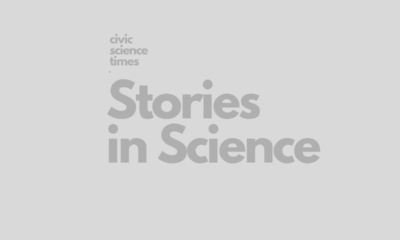Stories in Science Special Series
Finding a different way to make an impact

by Sharon Briggs | Senior Scientist at Helix

Sharon Briggs
[dropcap]I[/dropcap] can remember the day I decided I wanted a career in genetics. I was 17 years old sitting in my human anatomy-physiology class learning about sickle cell anemia. It blew my mind that we knew the specific base change that caused the disease. Yet we were powerless to fix it. It was in that moment that I decided I wanted to pursue genetic engineering to fix diseases like this.
My high school in West Virginia had limited resources available for college preparation. I remember going to a college counselor and telling her I wanted to study genetics in college. She handed me a huge book full of majors and told me to look it up. I took the book home and sat down with my dad. At that time (this was 2005, and the book might have been many years out of date) there were only about 20-30 schools listed under genetics. We went through each one and I ended up applying to three colleges off the list.
I may have started with the ambition to cure a single disease, but I am now on a mission to help every person discover information about every genetic disease.
It is thanks to that book that I ended up at Carnegie Mellon in the Mellon College of Science studying Biology. While I never lost my love of genetics, I began to explore new fields I never knew existed. When I first came across stem cell biology in my junior year, I was hooked. Induced pluripotent stem cells had just been discovered, and the impact these cells could have on treating human disease seemed endless. While it wasn’t genetic engineering per se, it was cellular engineering, and I knew I could make a big difference in people’s lives by using cells to treat disease. I was lucky enough to be given the opportunity to pursue a PhD at Stanford. My work focused on X chromosome inactivation in human iPSCs.
I loved every aspect of my PhD – from the incredibly brilliant friends and colleagues I made to the immense personal growth I gained along the way. And while I would go back and do it again, I realized that the impact I had hoped to have on improving people’s lives was just as far away as it had been 10 years ago when I first learned about sickle cell anemia. When I decided to leave academia for industry, I knew I wouldn’t settle for just any position. I wanted to make a difference. I wanted to be valued for my deep scientific expertise. I wanted an opportunity to learn new skills. When I came across Helix, it was a no brainer. It was the perfect blend of all three goals.

Spit Kit
At Helix I have specialized in the genetics of nutrition and fitness, and while I may never cure sickle cell anemia through genetic engineering, I am excited to be building products that will define how people interact with genetics for the first time. Through the work Helix is doing to make DNA sequencing cheaper and more accessible, I am helping people gain access to their own DNA. I may have started with the ambition to cure a single disease, but I am now on a mission to help every person discover information about every genetic disease.
About Sharon Briggs
I am a Senior Scientist at Helix, a new consumer genomics startup with a mission of empowering every person with their DNA information. At Helix, I support fitness and nutrition partners who are interested in incorporating genetic insights into consumer products (think about a coffee app that knows your bitter taste gene, your caffeine metabolism gene, and your sweet tooth gene and uses this to suggest a coffee drink for you). Prior to Helix I completed a PhD in Genetics at Stanford University studying X chromosome inactivation in human induced pluripotent stem cells.
The CS Media Lab is a Boston-anchored civic science news collective with local, national and global coverage on TV, digital print, and radio through CivicSciTV, CivicSciTimes, and CivicSciRadio. Programs include Questions of the Day, Changemakers, QuickTake, Consider This Next, Stories in Science, Sai Resident Collective and more.

-
Audio Studio1 month ago
“Reading it opened up a whole new world.” Kim Steele on building her company ‘Documentaries Don’t Work’
-
Civic Science Observer1 week ago
‘Science policy’ Google searches spiked in 2025. What does that mean?
-
Civic Science Observer1 month ago
Our developing civic science photojournalism experiment: Photos from 2025
-
Civic Science Observer1 month ago
Together again: Day 1 of the 2025 ASTC conference in black and white
Contact
Menu
Designed with WordPress





















